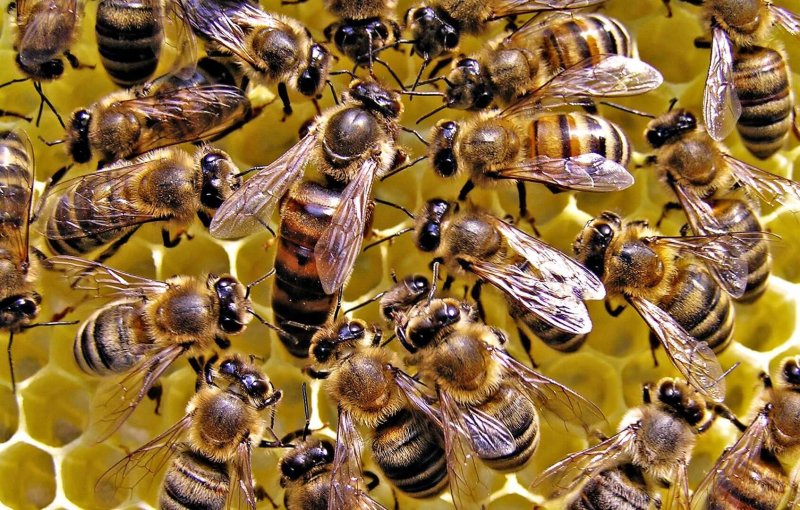[Editor’s note: The following is from a study published in the open-access mega-journal PLOS ONE.]
Neonicotinoid insecticides can cause a variety of adverse sub-lethal effects in bees. In social species such as the honeybee, Apis mellifera, queens are essential for reproduction and colony functioning. Therefore, any negative effect of these agricultural chemicals on the mating success of queens may have serious consequences for the fitness of the entire colony. … [Q]ueens reared in colonies exposed to both neonicotinoids experienced fewer matings. This resulted in a reduction of the genetic diversity in their colonies (i.e. higher intracolonial relatedness). As decreased genetic diversity among worker bees is known to negatively affect colony vitality, neonicotinoids may have a cryptic effect on colony health by reducing the mating frequency of queens.
…
Successful mating of the honeybee queen is paramount to colony health and fitness. Our results demonstrate that queens exposed to neonicotinoids during development mated with significantly fewer drones at the same DCAs [Drone Congregation Areas].
…
Our data suggest that combined exposure to the neonicotinoids thiamethoxam and clothianidin can have a negative long term effect on colony health by reducing intracolonial genetic diversity resulting from few matings. The data highlight an important sublethal effect of neonicotinoids for eusocial species relying on one or few primary reproductives.
The GLP aggregated and excerpted this article to reflect the diversity of news, opinion and analysis. Read full, original post: Neonicotinoid pesticides can reduce honeybee colony genetic diversity































